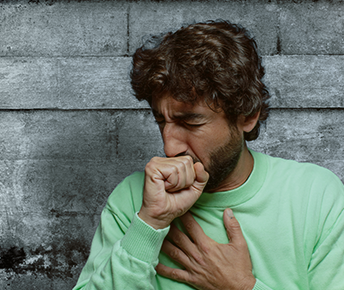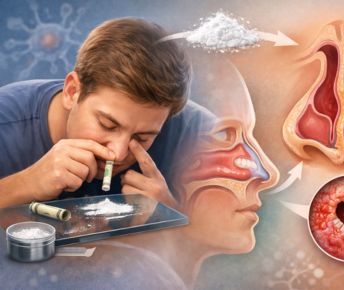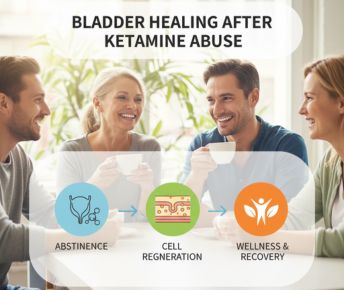Hash, or hashish, is a form of cannabis derived from the resin of the cannabis plant. While some advocate for its medicinal benefits, the long-term effects of hash consumption, especially when smoked, can lead to serious health implications, including issues related to mental health and lung function. In this blog, we will explore how hash addiction affects anxiety, depression symptoms, and lung health, backed by current research and health insights.
The Adverse Effects of Hash
Hash and Mental Health: The Anxiety and Depression Connection
Hashish is known for its ability to relax the mind temporarily, but over time, chronic use can trigger or worsen mental health issues.
Symptoms of Anxiety and Depression
Frequent use of hash can alter brain chemistry, leading to imbalances that manifest as anxiety and depression. Some of the common symptoms of anxiety and depression linked to hash use include:
- Persistent feelings of sadness or hopelessness (Depression Symptoms).
- Overwhelming worry or fear about everyday situations.
- Difficulty concentrating or making decisions.
- Physical symptoms like fatigue, nausea, or racing heartbeats.
Although hash may initially seem to ease these feelings, its prolonged use can exacerbate them. Users might find themselves caught in a vicious cycle—smoking hash to alleviate anxiety or depression, only to find that it worsens over time.
Smoking and Lungs: A Hidden Cost
While much of the focus is on the mental effects of hash, smoking hash has a significant impact on lung health. Just like smoking tobacco or ganja, hashish introduces harmful toxins into your lungs. Regular users often experience:
- Chronic cough and wheezing.
- Increased risk of respiratory infections.
- Decreased lung function over time.
- Lung Detox: Is It Possible?
If you’ve been smoking hash for years, it’s not too late to make a change. While your lungs won’t recover overnight, adopting a lung detox plan can help. Simple steps like staying hydrated, practising deep breathing exercises, and reducing exposure to air pollutants can support lung healing. If quitting seems daunting, seeking professional help is always a ;od idea.
Charas, Ganja, and the Balance Between Benefits and Side Effects
Hash, charas, and ganja have long been part of cultural and medicinal practices in many parts of the world. They’re often touted for their calming effects or ability to relieve certain ailments. However, the side effects of overuse outweigh the benefits.
Perceived Benefits
- Relaxation and stress relief.
- Temporary improvement in focus or creativity.
- Reduction in chronic pain or inflammation (when used responsibly).
Side Effects
- Impaired memory and cognitive function.
- Increased dependency over time, leads to addiction.
- Damage to mental health, including heightened anxiety and depression symptoms.
- Long-term respiratory and lung damage, especially when smoked.
It’s important to remember that moderation and context matter. Recreational overuse or reliance on hash as a coping mechanism can lead to long-term harm.
The Path to Recovery: Addressing Hash Addiction
If you or a loved one is struggling with hash addiction, take charge—it’s never too late to turn things around. Recovery is a journey, and it starts with acknowledging the problem.
Steps You Can Take
- Seek support: Speak to a trusted friend, family member, or therapist.
- Educate yourself: Learn about the symptoms of anxiety and depression that might be linked to hash use.
- Adopt healthy habits: Consider activities that promote lung detox and mental well-being, like yoga or mindfulness exercises.
- Consider professional help: Rehab centers and addiction specialists can provide the tools and guidance needed to break free from dependency.
Final Thoughts: Hash Isn’t Harmless
Hashish, like any substance, has its risks and rewards. While it may offer a temporary escape, prolonged use can lead to significant health challenges, particularly for your lungs and mental health. The effects of smoking on the lungs can’t be ignored, nor can the worsening symptoms of anxiety and depression.
If you’re using hash recreationally, it’s essential to weigh the benefits against the potential long-term side effects. And if you’re struggling to quit, remember—you don’t have to do it alone. Whether you’re exploring lung detox methods or seeking help for Depression Symptoms, recovery is always possible.
Let’s prioritize health over habit and ensure that your story doesn’t end with addiction but with hope and healing.
Frequently Asked Questions (FAQs)
What are hash side effects?
Hash can cause impaired memory, anxiety, depression, respiratory issues, increased heart rate, and dependency. Prolonged use may worsen mental health and lung function.
Does hash affect kidneys?
While hash primarily affects the brain and lungs, excessive use can indirectly impact kidney health by contributing to dehydration or other systemic issues. However, direct kidney damage is rare.
Is hash bad for your lungs?
Yes, smoking hash can harm your lungs, leading to chronic cough, bronchitis, reduced lung function, and increased risk of respiratory infections.
What are the uses of charas?
Charas is traditionally used for relaxation, meditation, pain relief, and cultural rituals. However, overuse can lead to dependency and adverse health effects.
























 Yes, many offer serene environments and solid therapeutic frameworks. However, quality varies, so it’s essential to research accreditation, staff credentials, and therapeutic depth.
Yes, many offer serene environments and solid therapeutic frameworks. However, quality varies, so it’s essential to research accreditation, staff credentials, and therapeutic depth.




